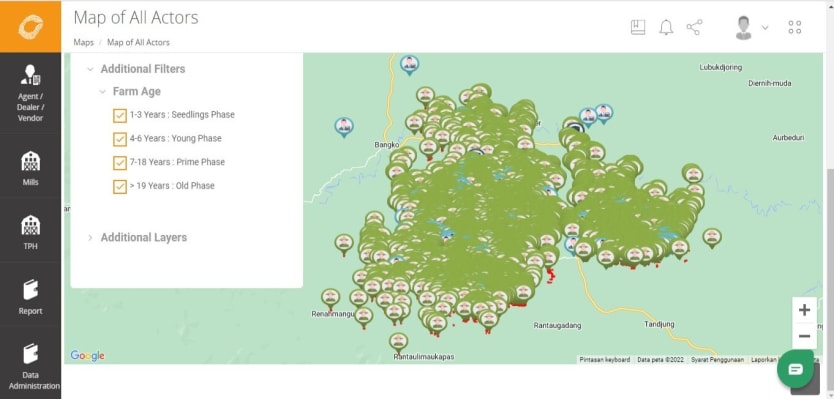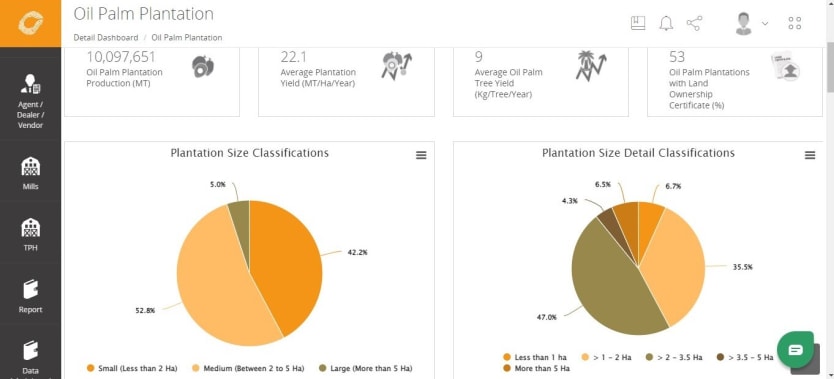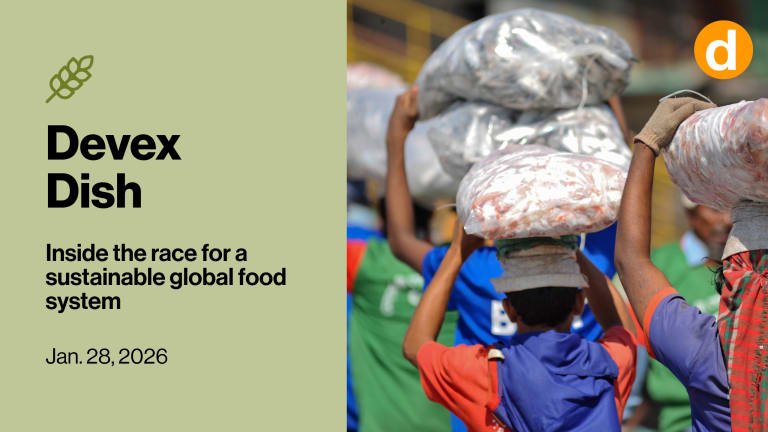
Traceability has become increasingly important for consumers. In a recent survey by IBM, 71% of consumers indicated that traceability is important and said they were willing to pay a premium for brands that provide it. Meanwhile, 77% of consumers indicated that it’s at least moderately important for brands to be sustainable or environmentally responsible.
For the palm oil industry, the significance of traceability goes beyond consumer preferences. End-to-end traceability in the supply chain plays a major role in propelling the industry into a more sustainable future.
Golden Agri-Resources’ “traceability to plantation” — or TTP — plan was first launched in 2016 as a bid to map out the company’s palm oil supply chain ecosystem. In Indonesia, which produces the biggest share of palm oil globally, this means engaging with millions of smallholders and third-party suppliers, as well as understanding the complexity of the process.
In 2017, GAR achieved full plantation traceability. As part of the company’s effort to support and accelerate data collection of our independent third party suppliers’ mills, GAR launched the Ksatria Sawit program in 2019.
We face a number of significant challenges. The supply chain in the palm oil sector is long, complex, and diverse. For many people we interact with, sustainability is a new and foreign concept. This is why we believe TTP is so important. It helps build the necessary foundation to support industry-level sustainable production practices.
Making palm oil sustainable, one smallholder at a time
Palm oil can be found in close to 50% of packaged products globally, making it the most in-demand vegetable oil in the world. In Indonesia, more than 40% of palm oil cropland belongs to smallholder farmers, who rely on their yields to meet the growing market demand. This has historically led to deforestation and land degradation, which have declined in recent years but remain a focus for the sector.
While Indonesia has millions of palm oil smallholders, most are not familiar with sustainable farming practices and traceability requirements.
For instance, rapid forest clearing — which drives climate change and biodiversity loss — was often caused by growers’ lack of access to high-yield seeds and fertilizers. Many also engaged in slash-and-burn practices, often blamed for forest fires and haze.
GAR’s TTP initiative allows the company to build a solid relationship with smallholders and devise proper intervention methods to help them increase productivity, reduce their environmental footprints, and implement best practices.
Transparency and traceability of supply chain production are tools, not end goals. The TTP program helps smallholders employ comprehensive supply chain data from upstream to downstream — from growers and processing mills to GAR. We also provide them with apps to track fruit delivery and manage crop quality. With this data, smallholders can better predict and avoid any environmental risks impacting their plantations, such as climate change, deforestation, and water security.


How human-centered technology empowers traceability
Onboarding the entire smallholder network into the program, however, hasn’t always been smooth-sailing. Due to the often dispersed, informal nature of palm oil farming in Indonesia, data collection and verification can be an arduous process.
When we began our traceability program in 2016, our process was manually driven. We were using internal resources, stacking ourselves against this vast, often impenetrable network of smallholder farmers, who make up a significant proportion of our supply chain.
Acknowledging the necessity of advanced agri-tech tools in accelerating its mapping efforts, GAR learned that genuine human interaction is the key to technology adoption and participation by farmers.
Technology is a powerful enabler, but we found that on-the-ground engagements are key. Our smallholder farmers prefer meeting face to face, and doing this allows us to understand their needs, wants, and struggles. By earning their trust, we find pathways to sustainability training or certification among our smallholders.
Golden Agri-Resources Ltd.
GAR is one of the world’s leading palm oil plantation companies, with a total planted area of nearly 540,000 hectares (over 1.3 million acres), including so-called plasma smallholders.
Located in Indonesia, it has integrated operations that are focused on producing and distributing an extensive portfolio of palm-based products. PT Sinar Mas Agro Resources and Technology Tbk, a subsidiary, has been listed on the Indonesia Stock Exchange since 1992.
See more information on working together here.
GAR was able to combine a high-tech approach with human-centered engagements by partnering with Indonesian agri-tech company Koltiva in 2019. The homegrown technology company is known for its “boots on the ground” services: While GAR rolled out region-specific workshops to educate its suppliers on its traceability program, Koltiva followed up the process by conducting field surveys with the mills, agents, and smallholders.
Since then, GAR has seen a significant increase in technological adoption among farmers in Indonesian villages. By putting meaningful human interaction front and center, we learned that our farmers are more inclined to participate in the TTP process. They feel incentivized to use the apps we deployed as a reliable source of information that helps improve their production, farming practices, and access to the international supply chain market. This is the key to our project’s success.

Promising outcomes
Now, three years down the road, GAR has managed to achieve 95% traceability to the plantation. To date, full traceability has been applied in over 60 third-party supplier companies with over 1,600 agents and more than 120,000 independent smallholders across 11 provinces, 68 districts, and over 2,500 villages in Indonesia.
The company also continues to strengthen multistakeholder partnerships to move its sustainable supply chain efforts forward, bringing in more third-party supply chain providers to be a part of the solution. For instance, in partnering with global consumer brand company Mars, last year GAR trained over 4,000 palm oil smallholders in Indonesia’s Aceh province to help them improve their sustainable agriculture practices and become more responsible producers.
The goal is to reach 100% TTP. This is an ongoing process, and so far, we have shown that traceability in the palm oil industry can be achieved by forming real connections with smallholders and understanding their challenges.
With more multistakeholder partnerships welcoming our TTP initiative, we are looking forward to seeing a more sustainable palm oil industry in Indonesia. We genuinely believe that transformation at scale can only happen when we work together.
Let’s work together!
This opinion has been updated to reflect the 2016 launch of Golden Agri-Resources’ “traceability to plantation” — or TTP — plan.







